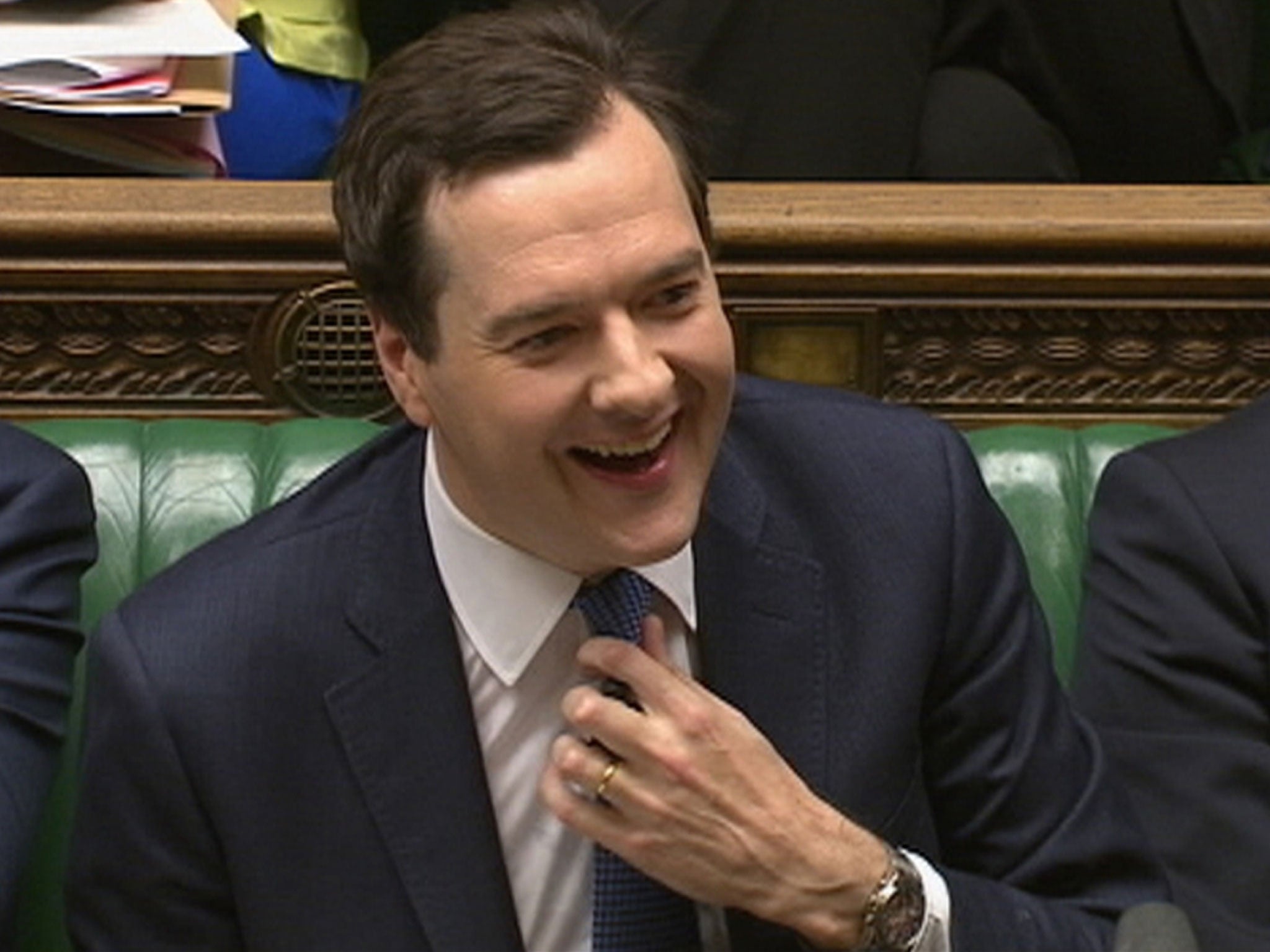Britain faces 'real economic crisis' warns George Osborne as he defends Spending Review plans
Mr Osborne also countered criticism that his plan was created with an eye on the upcoming election battle with Labour

Your support helps us to tell the story
From reproductive rights to climate change to Big Tech, The Independent is on the ground when the story is developing. Whether it's investigating the financials of Elon Musk's pro-Trump PAC or producing our latest documentary, 'The A Word', which shines a light on the American women fighting for reproductive rights, we know how important it is to parse out the facts from the messaging.
At such a critical moment in US history, we need reporters on the ground. Your donation allows us to keep sending journalists to speak to both sides of the story.
The Independent is trusted by Americans across the entire political spectrum. And unlike many other quality news outlets, we choose not to lock Americans out of our reporting and analysis with paywalls. We believe quality journalism should be available to everyone, paid for by those who can afford it.
Your support makes all the difference.Chancellor George Osborne today warned that Britain would face a "real economic crisis" if the country failed to follow the economic plan set out in yesterday's Spending Review.
Mr Osborne also countered criticism that his plan - which imposes a further £11.5 billion in cuts on Government spending - was created with an eye on the upcoming election battle with Labour.
Speaking on BBC1's Breakfast Mr Osborne defended the spending review saying that his plan was taking Britain from "rescue to recovery".
"We are out of intensive care," he added.
"It's taken longer than anyone would have hoped. That's partly because of all the things that went wrong in Britain, in our banks, but it's also because of what's happened elsewhere in the world, particularly in the eurozone.
"We face a choice as a country. We can either give up on the plan and go back into intensive care or we can go on confronting our problems and making sure Britain lives within its means.
"The basic fact is that Britain can't afford at the moment the size of the Government it's got, the size of the services it's got. We've got to take tough decisions about what we do about that.
"I've tried to prioritise the things that people really care about and most depend on - like the NHS and social care and schools - and also put money into the long-term things, the schools, the science and road-building and railways that are going to create an economy which creates jobs and creates income for the whole country."
Mr Osborne also denied his plan was an election pitch with one eye on the battle with Labour telling Radio 4's Today programme: "This is not an election pitch, this is about moving this economy from rescue to recovery and an economic plan that is taking Britain out of intensive care.
"I also think it is about reforming the state in a progressive way. If you look at the choices we made yesterday, we put more money into the pupil premium which helps the lowest income kids in our schools, we put more money into the troubled family initiative for 400,000 families who most need the support of the state to get their lives together, we put more money into social care.
"Distributional impact (analysis) of the entire consolidation shows that it is the richest in society who have lost the most proportionately."
Shadow Chancellor Ed Balls criticised the Mr Osborne's plans questioning whether the plans would bring the promised savings.
Mr Balls said Labour accepted the need to reduce the cost of social security - and would consider whether it can give its backing to a controversial new seven-day wait before claiming benefits - but accused the Government of using "nasty, divisive rhetoric" to try to turn voters against welfare claimants.
Mr Balls was challenged over whether Labour would back the seven-day wait for people to claim benefits after losing their jobs, which has been denounced by unions and charities.
He told BBC Radio 4's Today programme: "We will need to look very carefully at what this means. We'd supported when we were in government a three-day wait, so the principle of a wait is fine. With the move from three to seven days we need to know how much money will be saved, who from and how it would work.
"If this is a blank cheque to Wonga and other payday loan companies, that would be a very bad thing. If, on the other hand, it's a sensible way to focus on job search, it might not be."
But he added: "We've had a whole series of announcements from the Government over the last three years which claimed to save money but ended up not working and being ineffective. The welfare and social security bill has been rising.
"I think it's important that we find ways of saving money if we can, but in a fair way.
"I would have a compulsory jobs guarantee which would mean that every young person at 12 months unemployment would have to take a job, and there would be a job for the long-term unemployed at two years. We would pay for that by a tax on bank bonuses.
"I think that would be tougher than the Government but it would also get people back to work and save money.
"The reality is that, for all the Government's nasty divisive rhetoric on welfare and social security, they've actually been very bad at controlling the bills. I would have a tougher approach but also a fairer approach at getting young people back into work."
Join our commenting forum
Join thought-provoking conversations, follow other Independent readers and see their replies
Comments